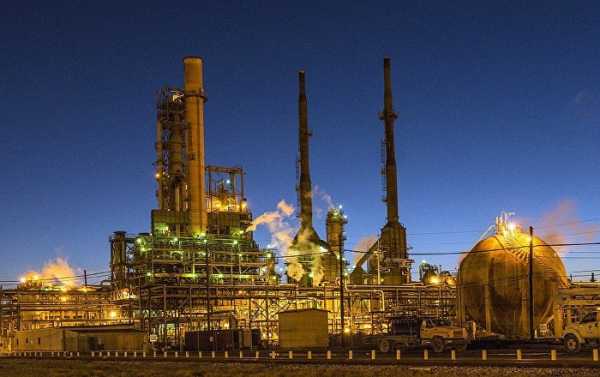
World oil prices grow against the background of high demand in the United States and China, the constant desire of OPEC to the output caps, and rising global political and trade tensions.
Kristian Rouz — global oil prices are posting sustainable growth through increasing energy consumption in the United States, the continued commitment of Saudi Arabia to reduce production and the growth of global political uncertainty.
Last week crude stockpiles in the US dropped by one million barrels due to higher activity and rising gasoline prices, sustained high demand ahead of the summer holiday season. This is according to a report by the American petroleum Institute (API), which also found the total U.S. oil stocks fell to 428 million barrels.
“Oil prices hold near three-year highs reached earlier in April at the moment, and with inventories in line with normal levels, a glut in the last few years seems to be over,” William O’loughlin Rivkin securities in Australia.
Futures for Brent oil increased to 72.07 $per barrel on Wednesday in early trading in London, while WTI with delivery was $67.01/barrel overnight — an increase of 0.7% compared with the previous trading session for both criteria.
In addition, the Dutch Bank ING increased average global oil prices this year to $66.50 from $60.25/bbl for Brent crude and to $62.50 per barrel from $57.75/bbl. at the WTI.
In addition, energy officials from Saudi Arabia met with their counterparts from other countries-members of OPEC, are looking for continued support to oil prices. The Kingdom is eyeing the $80 threshold/bbl. in light of recent developments in the global energy market.
The increase in oil prices will also contribute to increase the financial stability of Saudi Arabia, as the majority of revenues still come from oil exports.
In addition, higher oil prices are considered to be necessary by officials in Saudi Arabia Aramco ahead of the IPO planned for next year.
“We believe that oil prices will go higher this year and rise even higher in 2019, so we try to find the right time,” the crown Prince of Saudi Arabia Mohammed bin Salman recognised for his recent fight against corruption in the higher echelons of power of the Kingdom’s political structure, — has told to journalists.
Global energy markets have rallied as energy investors fear a severe disruption in oil supplies amid heightened tensions in the middle East, the us-China trade dispute and the continued acceleration of global GDP.
In addition, the prospect of the resumption of U.S. sanctions against Iran — with the possible trump administration’s pull-out from the Iranian nuclear deal in mid-may, stressed the concern of the U.S. can re-impose an oil embargo against the Islamic Republic.
On top of all this, the continuing economic crisis in Venezuela, one of the world’s largest oil producers contributed to the lowered forecasts of global oil production.
“Currently, OPEC production is lower than expected as a result of significant reduction in Venezuelan production caused by the deterioration of the economic situation,” said O’loughlin.
Currently, the demand on the world oil market has improved, including increasing refining capacity in China. Refineries of the continent has been treated in the past month, 12.1 million barrels of crude, the highest on record.
This comes as China’s GDP accelerated to 6.8% in the first quarter year-to-year comparison, signaling higher demand for fuel in China and the far East in General.
Oil prices are bound to increase gradually, further brightening the prospects for shale oil in the United States, especially small-caps, as their break-even costs are very low. Still, despite predictions that the increase in production volumes and oil exports, the world prices practically do not feel any pressure downwards on the background of a difficult international environment.
This may mean that the global oversupply of oil will paralyze the world’s largest oil-producing economy from the middle of 2014, can finally begin to disappear.
Sourse: sputniknews.com






